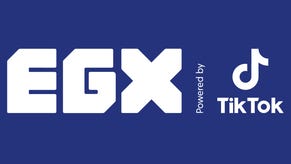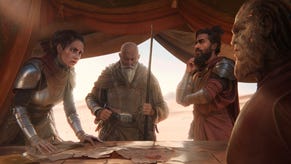Govt to axe boring school ICT courses from September
UPDATED: Education Secretary's speech added.
Update: The speech given by Education Secretary Michael Gove today follows:
"As the chairman of Google, Eric Schmidt, recently lamented, we in England have allowed our education system to ignore our great heritage and we are paying the price for it."
"Our school system has not prepared children for this new world. Millions have left school over the past decade without even the basics they need for a decent job. And the current curriculum cannot prepare British students to work at the very forefront of technological change."
"The best degrees in Computer Science are among the most rigorous and respected qualifications in the world… and prepare students for immensely rewarding careers and world-changing innovations. But you'd never know that from the current ICT curriculum."
"This is why we are withdrawing it from September. Technology in schools will no longer be micro-managed by Whitehall. By withdrawing the Programme of Study, we're giving teachers freedom over what and how to teach, revolutionising ICT as we know it."
"Universities, businesses and others will have the opportunity to devise new courses and exams. In particular, we want to see universities and businesses create new high-quality Computer Science GCSEs, and develop curricula encouraging schools to make use of the brilliant Computer Science content available on the web."
"ICT will remain a compulsory part of the National Curriculum, pending the National Curriculum review."
"Imagine the dramatic change which could be possible in just a few years, once we remove the roadblock of the existing ICT curriculum. Instead of children bored out of their minds being taught how to use Word and Excel by bored teachers, we could have 11-year-olds able to write simple 2D computer animations using an MIT tool called Scratch. By 16, they could have an understanding of formal logic previously covered only in University courses and be writing their own Apps for smartphones."
"This is not an airy promise from an MP - this is the prediction of people like Ian Livingstone who have built world-class companies from Computer Science."
Original story: Schools in England are to scrap their boring snoring ICT courses from September, the government will announce later today.
Created in their place will be "more rigorous" and compulsory 21st century teachings in computer science.
Hooray!
"Imagine the dramatic change which could be possible in just a few years, once we remove the roadblock of the existing ICT curriculum," Secretary of State for Education Michael Gove will announce later today, according toBBC News.
"Instead of children bored out of their minds being taught how to use Word or Excel by bored teachers, we could have 11-year-olds able to write simple 2D computer animations."
Gove not only wants a new computing GCSE, he also wants universities and business to devise fresh computing courses.
Gove will begin consultation on a new computing curriculum next week, apparently.

Ian Livingstone - UK gaming treasure, life president of Eidos and co-author of last year's Next Gen report - is an adviser to Gove.
"The current lessons are essentially irrelevant to today's generation of children who can learn PowerPoint in a week," Livingstone told BBC News.
"It's a travesty given our heritage as the most creative nation in the world.
"Children are being forced to learn how to use applications, rather than to make them. They are becoming slaves to the user interface and are totally bored by it."
Livingstone envisages a curriculum that could have 16 year-old GCSE students creating apps for smartphones; and 18 year-old AS and A Level students writing their own simple programming languages.





.png?width=291&height=164&fit=crop&quality=80&format=jpg&auto=webp)


